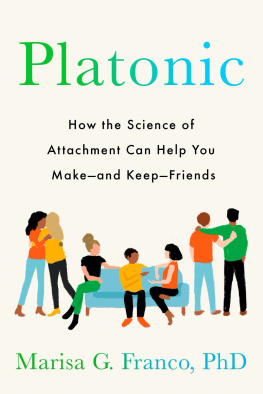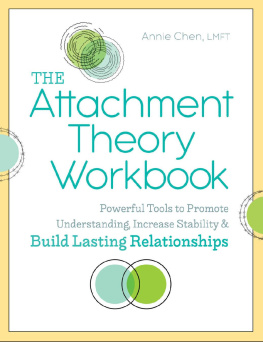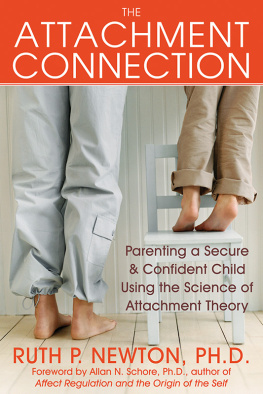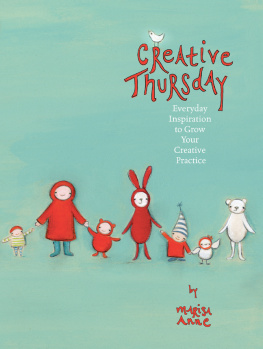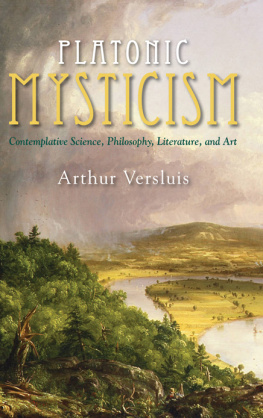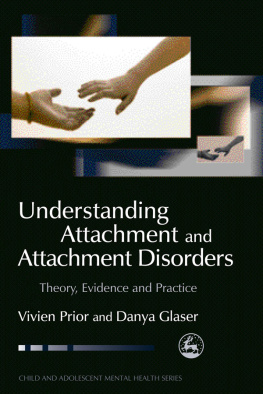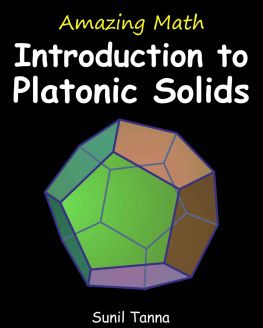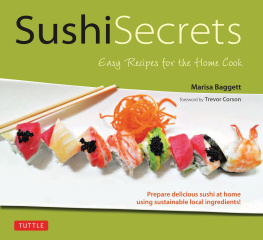Marisa G. Franco - Platonic : How the Science of Attachment Can Help You Make--and Keep--Friends
Here you can read online Marisa G. Franco - Platonic : How the Science of Attachment Can Help You Make--and Keep--Friends full text of the book (entire story) in english for free. Download pdf and epub, get meaning, cover and reviews about this ebook. year: 2022, publisher: Penguin Publishing Group, genre: Romance novel. Description of the work, (preface) as well as reviews are available. Best literature library LitArk.com created for fans of good reading and offers a wide selection of genres:
Romance novel
Science fiction
Adventure
Detective
Science
History
Home and family
Prose
Art
Politics
Computer
Non-fiction
Religion
Business
Children
Humor
Choose a favorite category and find really read worthwhile books. Enjoy immersion in the world of imagination, feel the emotions of the characters or learn something new for yourself, make an fascinating discovery.
- Book:Platonic : How the Science of Attachment Can Help You Make--and Keep--Friends
- Author:
- Publisher:Penguin Publishing Group
- Genre:
- Year:2022
- Rating:3 / 5
- Favourites:Add to favourites
- Your mark:
- 60
- 1
- 2
- 3
- 4
- 5
Platonic : How the Science of Attachment Can Help You Make--and Keep--Friends: summary, description and annotation
We offer to read an annotation, description, summary or preface (depends on what the author of the book "Platonic : How the Science of Attachment Can Help You Make--and Keep--Friends" wrote himself). If you haven't found the necessary information about the book — write in the comments, we will try to find it.
Marisa G. Franco: author's other books
Who wrote Platonic : How the Science of Attachment Can Help You Make--and Keep--Friends? Find out the surname, the name of the author of the book and a list of all author's works by series.
Platonic : How the Science of Attachment Can Help You Make--and Keep--Friends — read online for free the complete book (whole text) full work
Below is the text of the book, divided by pages. System saving the place of the last page read, allows you to conveniently read the book "Platonic : How the Science of Attachment Can Help You Make--and Keep--Friends" online for free, without having to search again every time where you left off. Put a bookmark, and you can go to the page where you finished reading at any time.
Font size:
Interval:
Bookmark:
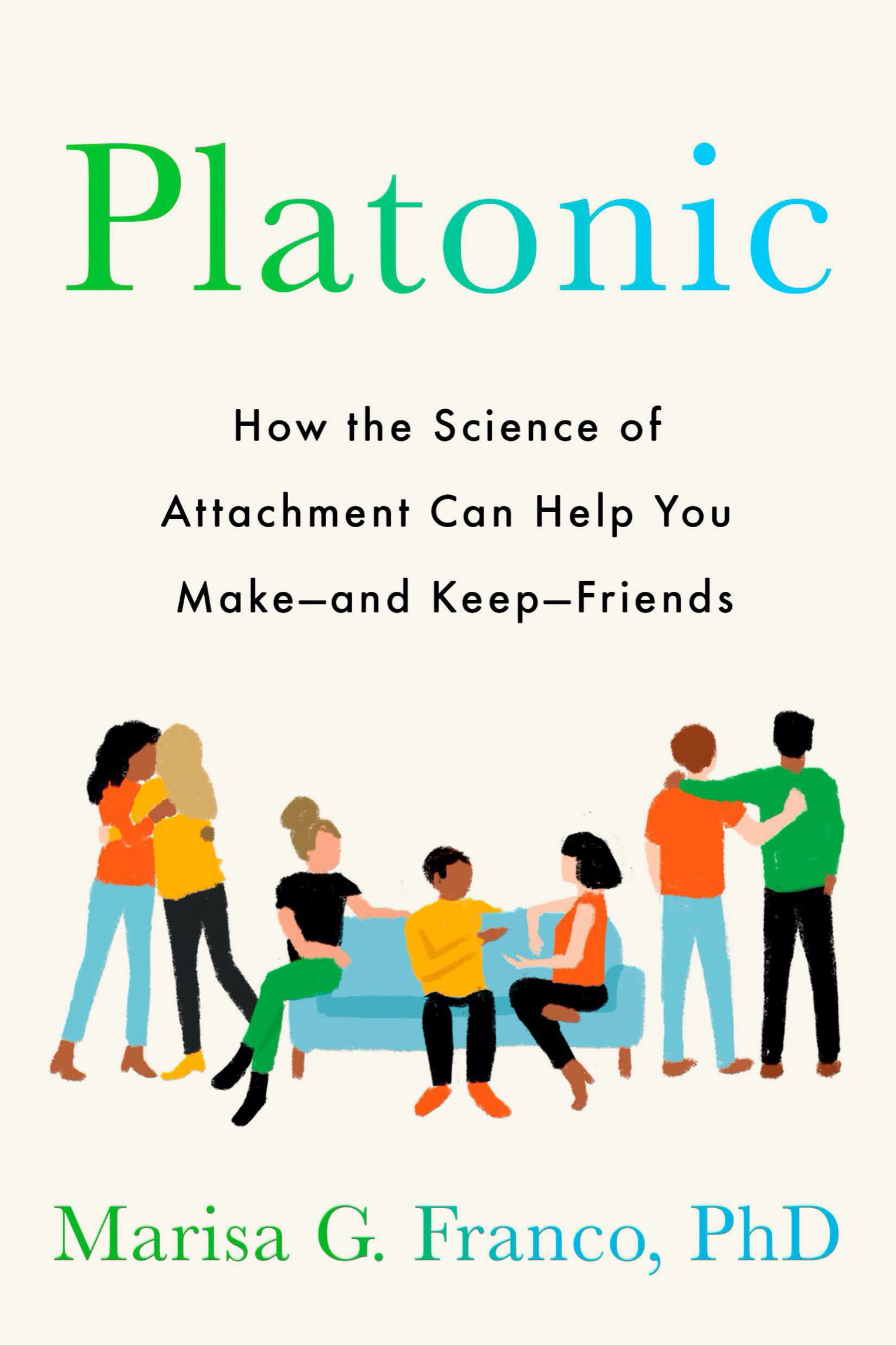
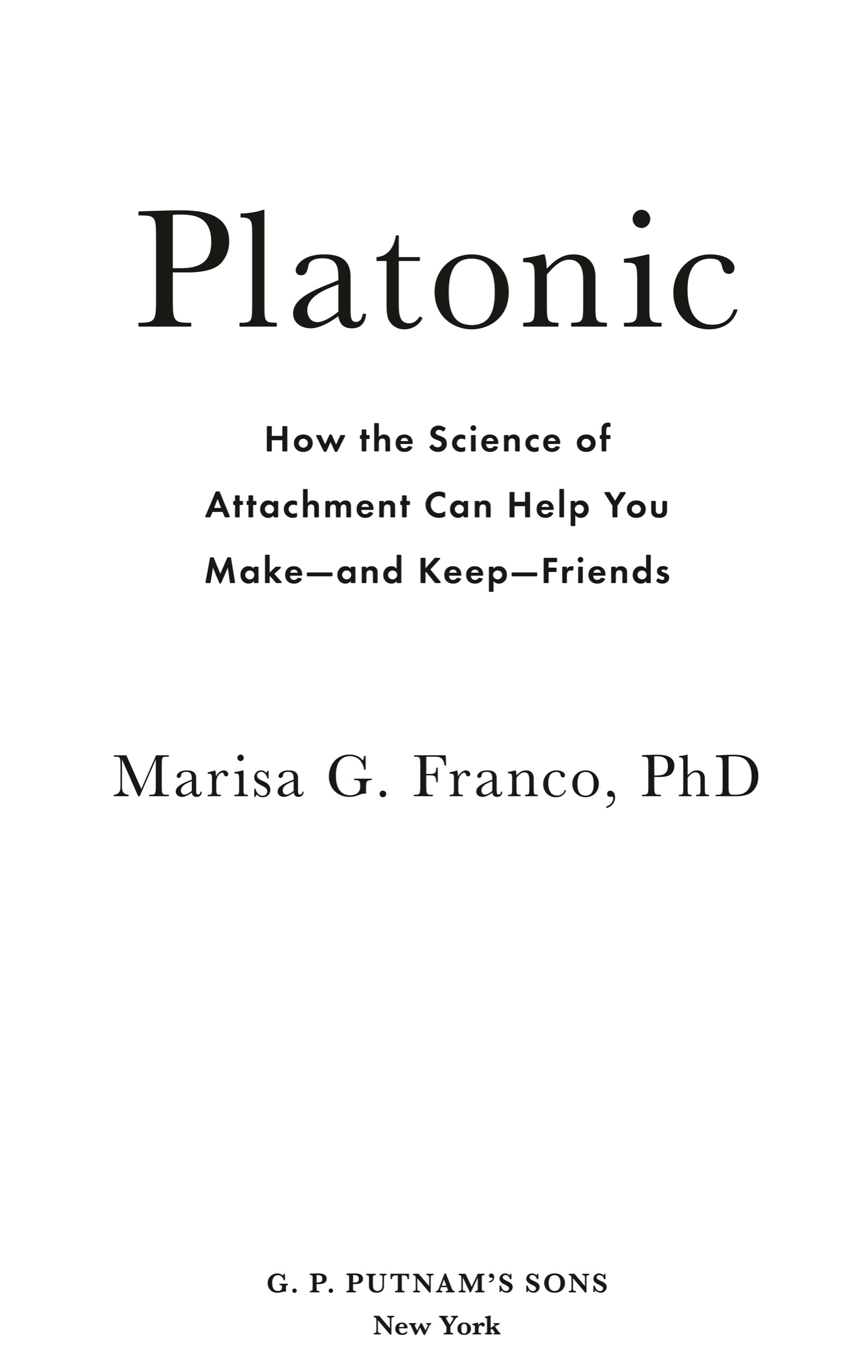

G. P. Putnams Sons
Publishers Since 1838
An imprint of Penguin Random House LLC
penguinrandomhouse.com

Copyright 2022 by Dr. Marisa G. Franco PLLC
Penguin Random House supports copyright. Copyright fuels creativity, encourages diverse voices, promotes free speech, and creates a vibrant culture. Thank you for buying an authorized edition of this book and for complying with copyright laws by not reproducing, scanning, or distributing any part of it in any form without permission. You are supporting writers and allowing Penguin Random House to continue to publish books for every reader.
Library of Congress Cataloging-in-Publication Data
Names: Franco, Marisa G., author.
Title: Platonic: how the science of attachment can help you makeand keepfriends / Marisa G. Franco, PhD.
Description: New York: G. P. Putnams Sons, [2022] | Includes bibliographical references and index.
Identifiers: LCCN 2022019244 (print) | LCCN 2022019245 (ebook) | ISBN 9780593331897 (hardcover) | ISBN 9780593331903 (ebook)
Subjects: LCSH: Friendship. | Attachment behavior.
Classification: LCC HM1161 .F728 2022 (print) | LCC HM1161 (ebook) | DDC 302.34dc23/eng/20220426
LC record available at https://lccn.loc.gov/2022019244
LC ebook record available at https://lccn.loc.gov/2022019245
Cover design and illustration: Sandra Chiu
Adapted for ebook by Maggie Hunt
pid_prh_6.0_140822096_c0_r0
For my friends: my lifelines, my soul mates, my healers, and my everyday joys
The stories of friendship youll read in Platonic are all based on true stories. Im indebted to the people who shared their stories with me to help me bring the research to life. Out of respect for them, Ive changed many of their names and identifying characteristics. At times, Ive combined stories from multiple people to further anonymize.
The advice I share in Platonic comes from hundreds of scientific studies and my consultations with dozens of experts. I believe in this research, but I also must acknowledge its limitations. Much of the research on friendship is older, is conducted in the US, and uses small samples of predominately White, heterosexual college students. Some people might not see their life experience in this research, and they are right to critique my work. To give you research-based advice that I can feel confident in, Ive read widely and shared advice thats based on multiple studies, rather than on any single one. Still, we need much more research on friendship to make stronger, more nuanced claims that best reflect the diversity of our lived experiences.
Im thrilled for you to read Platonic. I hope it gives you as much value as I have received through writing it. I must admit I have an agenda in writing this book: to help create a world that is kinder, friendlier, more loving. And Im so proud of you, reader, for embarking on this journey.
In 2015, I grieved brutally. A burst of promising romance ended in disaster. I thought about it when I rocked on the elliptical machine every morning, when I teared up walking between classes, and basically whenever my mind had nothing else to cling to as a distraction. Coming out of the grief required a series of revelations. First, I had to understand why I had taken this loss so hard, why it had caused me so much suffering. I had to articulate the ways I held romantic relationships in such high regard so that they controlled my happiness: as if there was no love in my life at all without this kind of love.
Why did I place so much importance on romantic love when up until that point, it had not been particularly fulfilling? I had been breathing in some deeply held cultural convictions. Finding romantic love is my purpose. The moment that I find romantic love is the moment at which life will truly begin. Failing to find romantic love means being fundamentally flawed in the way of being human. And without romantic love, there is no love at all.
To recover from my grief, I gathered a few of my very best friends to start a wellness group. Every week, we met up and one of us chose a self-care activity we could engage in together and hosted us all with snacks included. There was yoga, cooking, reading, meditating. But most curative of all, there was community. Being around people who loved me and whom I loved healed me. Although I had, until then, devalued the significance of friendship in favor of romance, after the wellness group, I could no longer diminish the colossal importance of friends.
In 2017, I suitcased my life and moved out of my six-year home in Washington DC, over to Atlanta, Georgia. I didnt know many people in Atlanta, but some of my very best friends in DC made it their goal to ensure I wouldnt be lonely when I reached Atlanta. Packed away in my suitcase was a jar full of fortune cookielike scrolls on which my friends had listed their favorite memory of us together. I also had a two-by-three framed collage with pictures of me and my friends beaming, parading, and embracing. The year before had been one of the golden ages of my life, and this was undoubtedly because I had amassed people who knew and loved me.
I threw a combined going-away/birthday party in May 2017, when I knew I was leaving DC. We had all gone to a funky art show concert together and then returned to crowd into my small apartment for cake and champagne. I made a toast to the seven or so of us left in a circle in the living room. The champagne was setting in, giving me its permission to give a toast of the vulnerable kind: I want you all to know that I was in a rough place this time last year. And each and every one of you in this rooms friendship has been part of the force that has lifted me out of it.
That birthday, along with my wellness group, was part of my metamorphosis. I started turning toward, recognizing, and actively valuing friends. In the years before, when I figured only romantic relationships were meaningful, whenever my hopeful romantic trysts were combusting, I despaired. My sadness was nourished by gaps in my thinking. I was zooming in only to what was wrong in my life (romance) and disregarding all that was right (friendship). This sort of tunnel vision left me using these failed romances as evidence that made me question whether I could form meaningful relationships at all, whether I was worthy of love. I was unlearning this process of absorbing myself so much in one type of love that I discounted all the love that was around me, that had always been around me. I had so much love. And just because it came from friends, why should it matter less?
Platonic love lies at the lowest rung of the hierarchy our culture places on love. But Ive learned its a devastating loss to us all if we dispose of it there. I wrote this book because Id like for our culture to level this hierarchy. But because we dont always value friendship, we lack knowledge on how to cultivate it. If were going to realize friendships full potential in our lives, we need to know how to make and keep friends.
Font size:
Interval:
Bookmark:
Similar books «Platonic : How the Science of Attachment Can Help You Make--and Keep--Friends»
Look at similar books to Platonic : How the Science of Attachment Can Help You Make--and Keep--Friends. We have selected literature similar in name and meaning in the hope of providing readers with more options to find new, interesting, not yet read works.
Discussion, reviews of the book Platonic : How the Science of Attachment Can Help You Make--and Keep--Friends and just readers' own opinions. Leave your comments, write what you think about the work, its meaning or the main characters. Specify what exactly you liked and what you didn't like, and why you think so.

